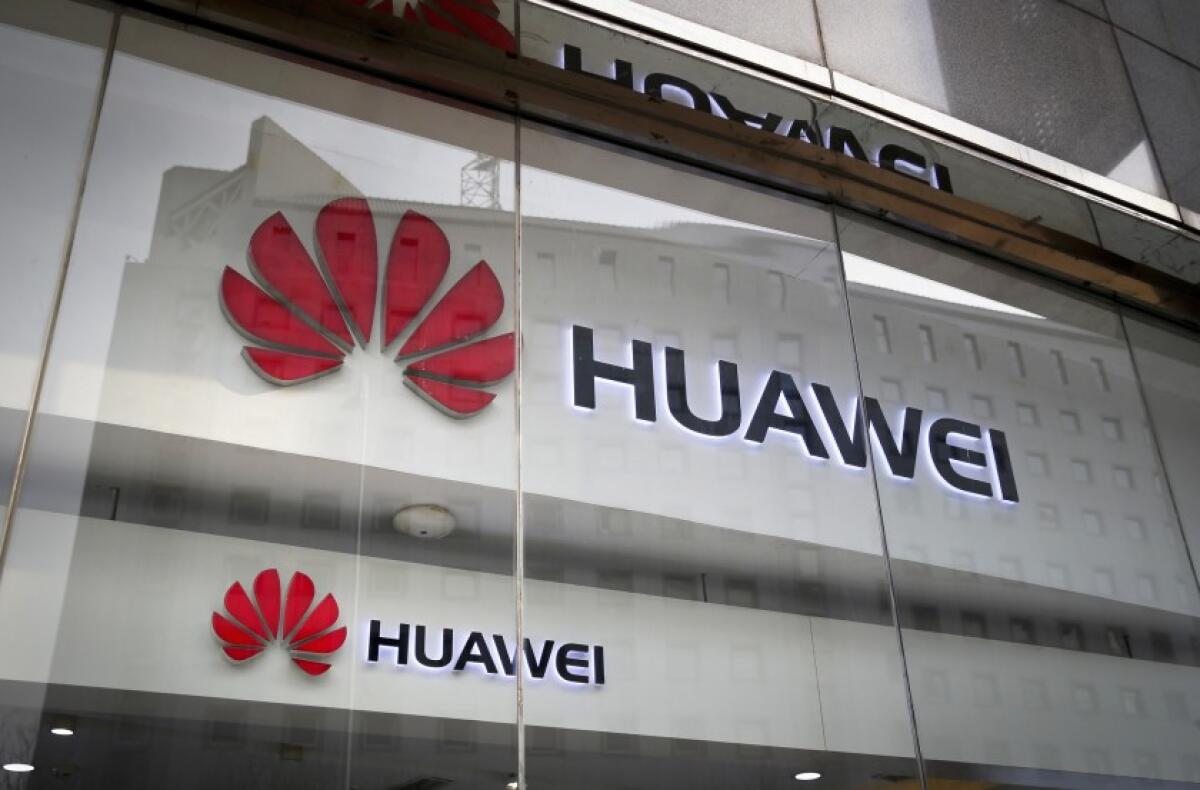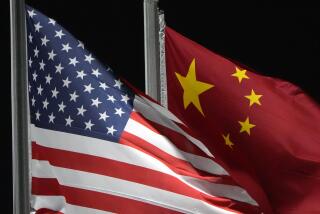FCC calls Huawei and ZTE security threats as it bars subsidies

- Share via
The U.S. Federal Communications Commission designated Huawei Technologies Co. and ZTE Corp. as national security threats, a step toward driving the Chinese manufacturers from the U.S. market, where small rural carriers rely on their cheap network equipment.
The action means money from federal subsidies used by many small rural carriers may no longer be used to buy or maintain equipment produced by the companies, the FCC announced Tuesday.
“Both Huawei and ZTE have close ties to the Chinese Communist Party and China’s military apparatus,” FCC Chairman Ajit Pai said on Twitter. “We are sending a clear message: the U.S. government, and this @FCC in particular, cannot and will not allow the Chinese Communist Party to exploit vulnerabilities in U.S. communications networks.”
The FCC has increasingly scrutinized Chinese companies as tensions grow between Beijing and Washington over trade, the coronavirus and security issues. The agency is considering banning three Chinese telephone companies, and last year it barred China Mobile Ltd. from entering the U.S. market.
The U.S. contends that Huawei’s equipment could be used by China for spying. The company has repeatedly denied that it poses any security risk and insists that it’s independent of the Beijing government.
Tuesday’s action formalizes a proposal adopted by the FCC in November. The agency also proposed requiring carriers to remove gear from companies designated a threat — a step that was not finalized in Tuesday’s action.
The designation means service will suffer as small carriers shut down parts of their networks because they can’t use subsidy funds for maintenance or replacement parts, said Carri Bennet, general counsel of the Rural Wireless Assn., which represents carriers with fewer than 100,000 subscribers.
“This is not good,” Bennet said in an interview. Small carriers are “in a bind. They don’t have cash to keep the networks afloat.”
About three dozen or four dozen rural carriers accept the subsidy and use equipment from Huawei or ZTE, the FCC estimated last year. The agency said the average cost for a firm to replace the equipment may range from $40 million to $45 million.
FCC Commissioner Geoffrey Starks said in a statement Tuesday that “untrustworthy equipment” remains in place and called for the FCC to institute a replacement program. “There is much more to do,” he said.
Last week Pai told Congress a full-scale rip-and-replace program could cost as much as $2 billion. The FCC wants to see “that needed funds are appropriated so we can move forward quickly to implement this program,” he said.
Rural carriers had urged the FCC to delay action until Congress dedicates money to buying replacement gear.
Rob Manfredo, a U.S.-based spokesman for Huawei, didn’t immediately respond to a request for comment.
More to Read
Inside the business of entertainment
The Wide Shot brings you news, analysis and insights on everything from streaming wars to production — and what it all means for the future.
You may occasionally receive promotional content from the Los Angeles Times.










